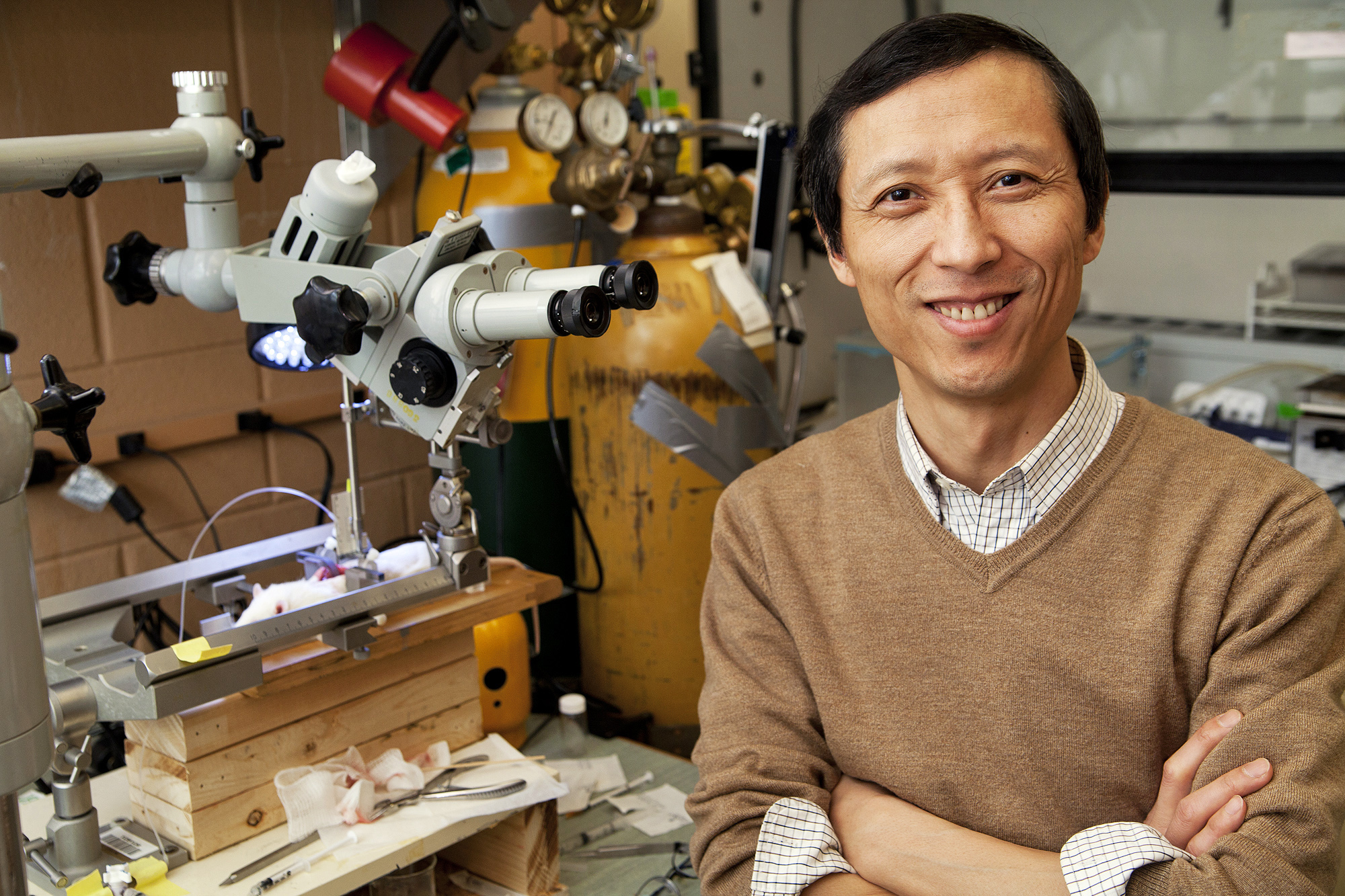Weldon's Shi Spearheads Spinal Research
Shi, a professor in the Weldon School of Biomedical Engineering and the Department of Basic Medical Sciences, plans to study the role of a toxin thought to worsen the severity of spinal cord injuries and to learn whether reducing its concentration in the days following trauma also decreases damage that can lead to paralysis.
"Spinal cord injury is a devastating medical condition with no effective treatments despite decades of research efforts," said Shi. "Often what happens is that people are injured, but the initial injury may not seem that serious. However, over the coming hours and days the injury intensifies, the damage site expands and may become much worse, sometimes resulting in permanent paralysis."
A toxin called acrolein is produced within the body after nerve cells are damaged, triggering a cascade of biochemical events thought to worsen the injury's severity. The work also will probe whether two drugs might be used to control the toxin's concentration to possibly reduce the severity of the injuries.

